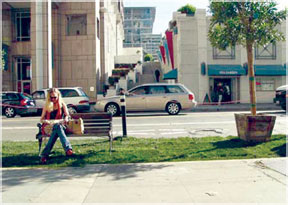
Honour your teachers
Teachers generate mixed feelings among different children. Some
children just adore their teachers, while some don't look all that
kindly upon them. Whatever you may think of your teachers, they, no
doubt, do a great service to society.

Teachers not only educate children in the academic arena, they also
guide them along the correct path in life.
After parents, teachers are the most precious adults in a child's
life.
The role of teachers in society will be commemorated and honoured on
October 5, when World Teachers' Day, spearheaded by the United Nations
Education, Scientific and Cultural Organisation (UNESCO), is observed.
On this day, teachers get involved in various activities such as
attending public meetings, and meeting and lobbying political leaders to
draw attention to their role in society.
This year, the focus will be on teachers' working conditions. Better
working conditions for teachers mean better learning conditions for
learners. Teachers around the world are clamouring for:
* A decent working environment for both teachers and learners with
appropriate class sizes and adequate resources;
*Regular salaries that allow decent living conditions;
*Equal pay and equal rights for women in the profession, capacity for
decision-making;
*Initial and ongoing professional development;
*Involvement in policy-making; and
*Collective bargaining to defend and enhance teachers' rights. The
Day was inaugurated in 1994 to commemorate the signing of the UNESCO/ILO
(International Labour Organisation) Recommendation Concerning the Status
of Teachers on October 5, 1966. Now the event is commemorated in over
100 countries.
A safe city is a just city
This is a rather busy week with many special events and days being
celebrated. Another day that graces the calendar this week is World
Habitat Day, which falls on the first Monday of October; this year, it
is on October 1 (tomorrow).
The theme for this year is 'A safe city is a just city'. The main
celebrations will take place in the Hague, the Netherlands, while major
celebrations will also take place in Monterrey, Mexico.

The theme was selected by the United Nations to raise awareness and
encourage reflection on the increasing threats to urban safety and
social justice, especially urban crime and violence, forced eviction
(being thrown out) and insecurity of tenure (holding of accommodation),
as well as natural and human-made disasters.
Crime and violence are some of the major causes of fear and
insecurity in many cities today. Between 1990 and 2000, incidents of
violent crime per 100,000 persons increased from 6 to 8.8.
Over the past five years, 60 per cent of all urban residents in the
world have been victims of crime, with 70 per cent in Latin America and
the Caribbean coming under this segment. Incidents of forced eviction
are also reported quite frequently from all parts of the world.
These acts are often attributed to bulldozing of squatter settlements
and slums, beautification and urban development. Freedom from forced
eviction has been recognized as a fundamental human right, yet it keeps
happening.
Disasters, both natural and man-made, are another threat to urban
safety. Climate change has made such disasters more common place.
Between 1975 and 2005, the number of disasters in the world increased
from 100 to 400 per year.
These combined threats were what had motivated the UN to select the
theme for this year. The activities of the Day are spearheaded around
the world by UN-HABITAT, the Human Settlements Programme. The World
Habitat Day was inaugurated in 1986.
World Temperance Day on October 3
Alcoholism is a serious problem around the world, especially in
developing countries such as Sri Lanka. It has led to crime of a serious
nature with many robberies and murders taking place as a direct result.
The evils of alcohol and alcohol dependency are highlighted on World
Temperance Day which falls on October 3. Alcohol is made of a compound
known as ethanol, and contains intoxicating properties.
In an average person, a concentration of 0.15 per cent alcohol in the
bloodstream causes mild intoxication, 0.3 per cent causes definite
drunkenness and partial loss of consciousness, and 0.6 per cent can
endanger life. Since alcohol cannot be stored in the body, it has to be
broken down in the liver, or in the stomach and kidneys.
In this break-down process, acetaldehyde, a highly toxic substance is
released into the body and this substance can cause great damage.
There are many groups such as Alcoholics Anonymous in foreign
countries as well as Sri Lanka who are working towards the minimising of
alcoholism among a country's population. However, their efforts may not
be successful if the people who have been caught in this trap do not
have the courage and conviction to get out of that situation.
So, if you have any alcoholics in your family, you can try to coax
them out of it. Explain that alcohol will not only rob them of their
health, wealth, friends and relations, but also that their lives will be
richer and happier for the lack of it. |
